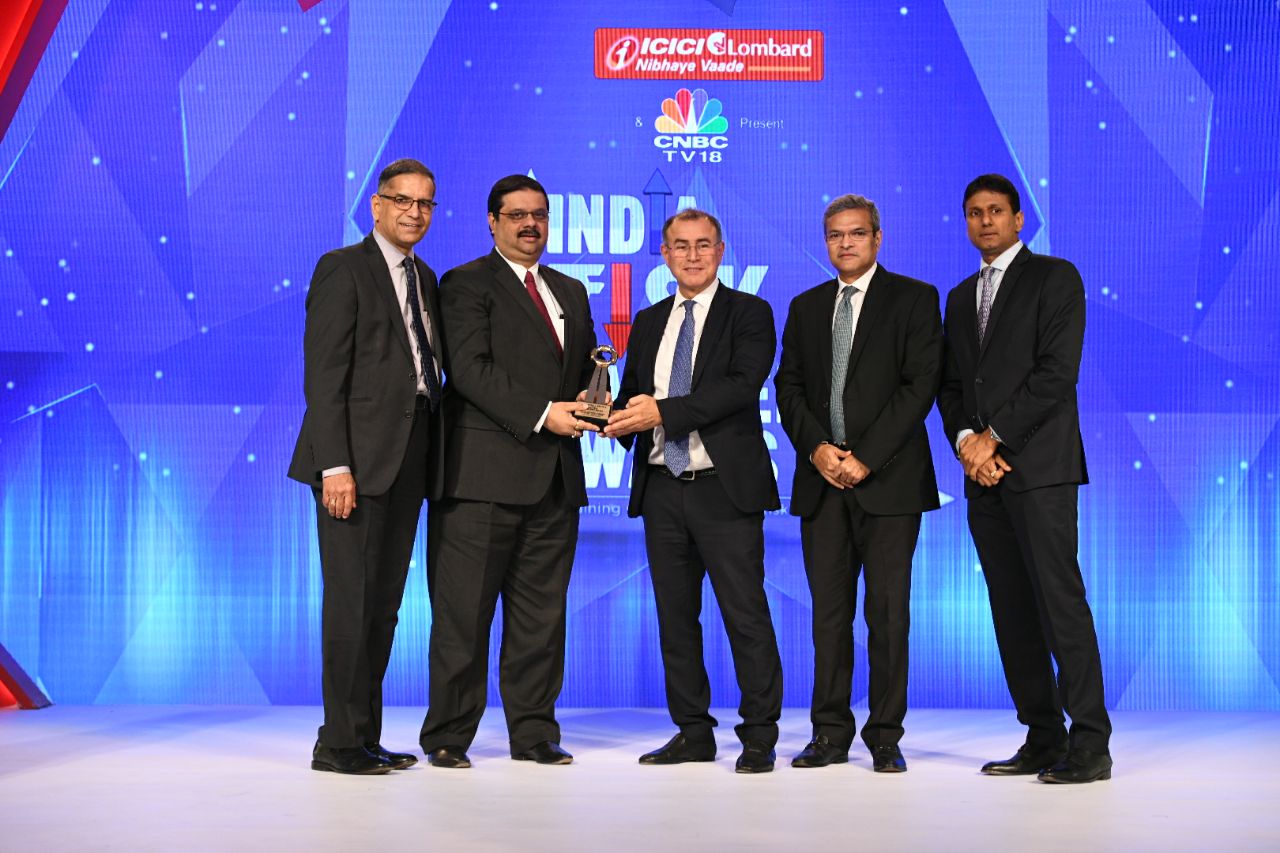Tata Steel wins awards for the 'Best Risk Management Framework & Systems' in categories- 'Risk Governance' and 'Metals & Mining'
Mr. Koushik Chatterjee, ED & CFO, Tata Steel received the awards on behalf of the company at the 4th India Risk Management Awards 2018
Tata Steel bagged awards for ‘Best Risk Management Framework & Systems’ in two categories, namely Risk Governance and Metals & Mining at the 4th India Risk Management Awards 2018 held today in Mumbai. Mr. Koushik Chatterjee, ED & CFO, Tata Steel, received the award on behalf of the organisation from Dr. Nouriel Roubini,Professor of Economics, NYUs Stern School of Business and Chairman & Co-founder, Roubini Global Economics. This is an important landmark in the journey of Tata Steel’s Enterprise Risk Management (ERM), and closely aligned to the organisation's efforts towards becoming a risk-intelligent organisation.

As a global entity, Tata Steel is exposed to risks as well as opportunities in equal measure. Recognising this, the Company has a robust Enterprise Risk Management (ERM) framework that allows the organisation to undertake certain risks in order to be competitive and to mitigate other risks to drive sustainable results. By identifying and proactively addressing risks and opportunities, stakeholder values are protected at all times. Tata Steel adopted the Enterprise Risk Management (ERM) formally in 2013, with an aim to become risk-intelligent organisation that supports informed decision-making and proactively prepares itself to handle unforeseen scenarios, which could possibly impact the business. The process has evolved over the years with the development of detailed process framework, associated guidelines and constitution of robust governance structures & mechanisms.
The ERM framework was developed in-house by incorporating inputs from benchmark industry practices, International standards & references (including COSO & ISO 31000), leadership direction and feedback from key stakeholders. A dedicated ERM team was set-up to facilitate the deployment of processes across the Company ensuring the uniformity & integrity of the process. The ERM framework has been customised to meet the organisation’s requirement and has been deployed successfully across business units in India.
The India Risk Management Awards recognises companies that have significantly added to the understanding and practice of Risk Management and have created best-in-class risk management practices and capabilities across business categories.
About Tata Steel
Tata Steel Group is among the top global steel companies with an annual crude steel capacity of 27.5 million tonnes per annum (MTPA) as on March 31, 2017. It is the world's second-most geographically-diversified steel producer, with operations in 26 countries and a commercial presence in over 50 countries. The Group recorded a consolidated turnover of US $18.12 billion (INR 117,420 crore) in FY17. Tata Steel Group is spread across five continents with an employee base of nearly 74,000. Having bagged the Deming Application Prize and Deming Grand Prize for continuous improvement in 2008 and 2012 respectively, Tata Steel has now been recognised as the global ‘Industry Leader’ in ‘Steel category’ by Dow Jones Sustainability Index (2015). Besides being a member of the World Steel Climate Action Programme, Tata Steel has also been felicitated with several awards including the Prime Minister’s Trophy for the best performing integrated steel plant for 2013-14 (received in 2017), Best Risk Management by CNBC TV18 (2016), ‘Best-in-class Manufacturing’ award from TIME India (2016) and the ‘Most Ethical Company’ award from the Ethisphere Institute (2016), IIM Sustainability Award (2015), among several others.
Disclaimer
Statements in this press release describing the Company’s performance may be “forward looking statements” within the meaning of applicable securities laws and regulations. Actual results may differ materially from those directly or indirectly expressed, inferred or implied. Important factors that could make a difference to the Company’s operations include, among others, economic conditions affecting demand/ supply and price conditions in the domestic and overseas markets in which the Company operates, changes in or due to the environment, Government regulations, laws, statutes, judicial pronouncements and/ or other incidental factors.









